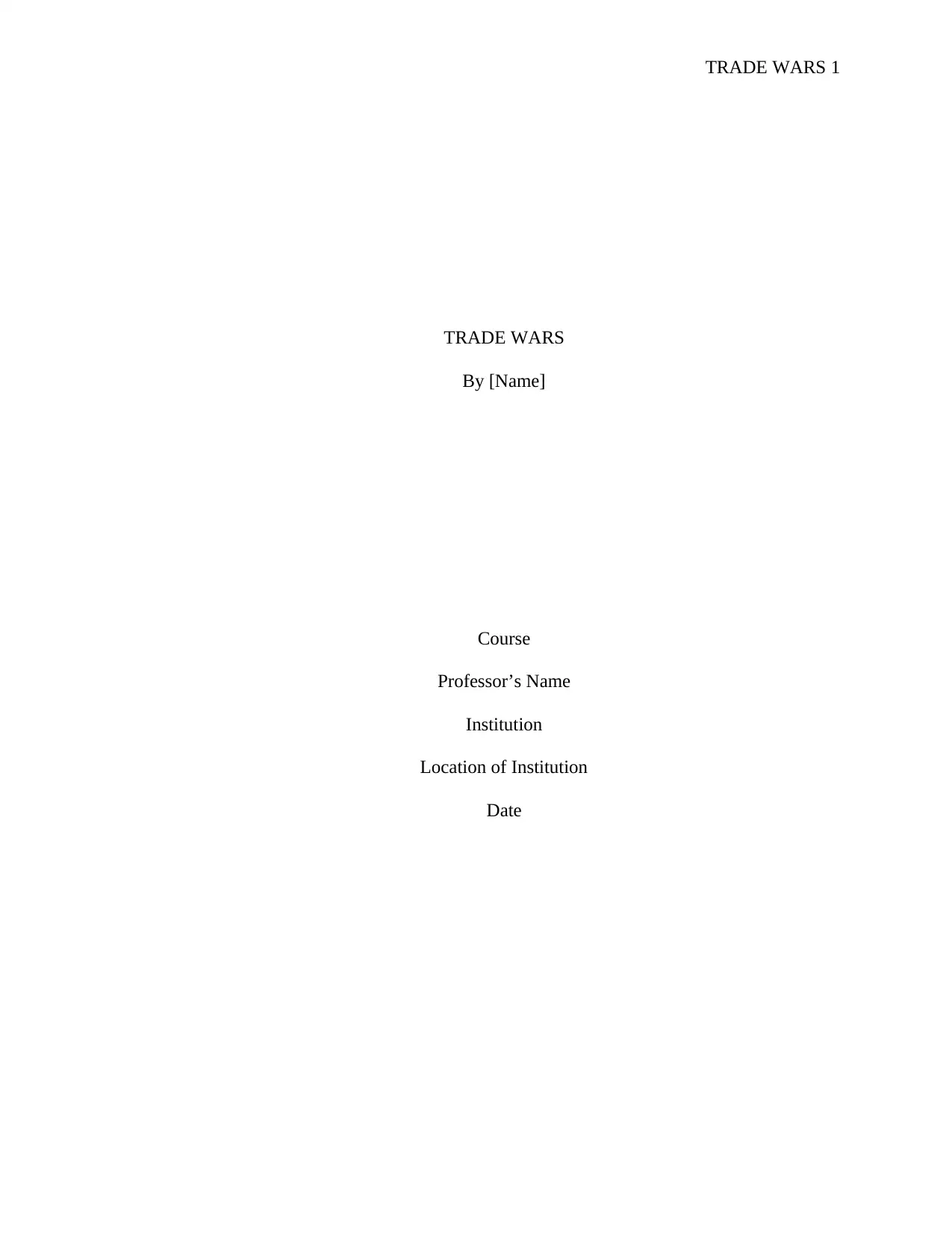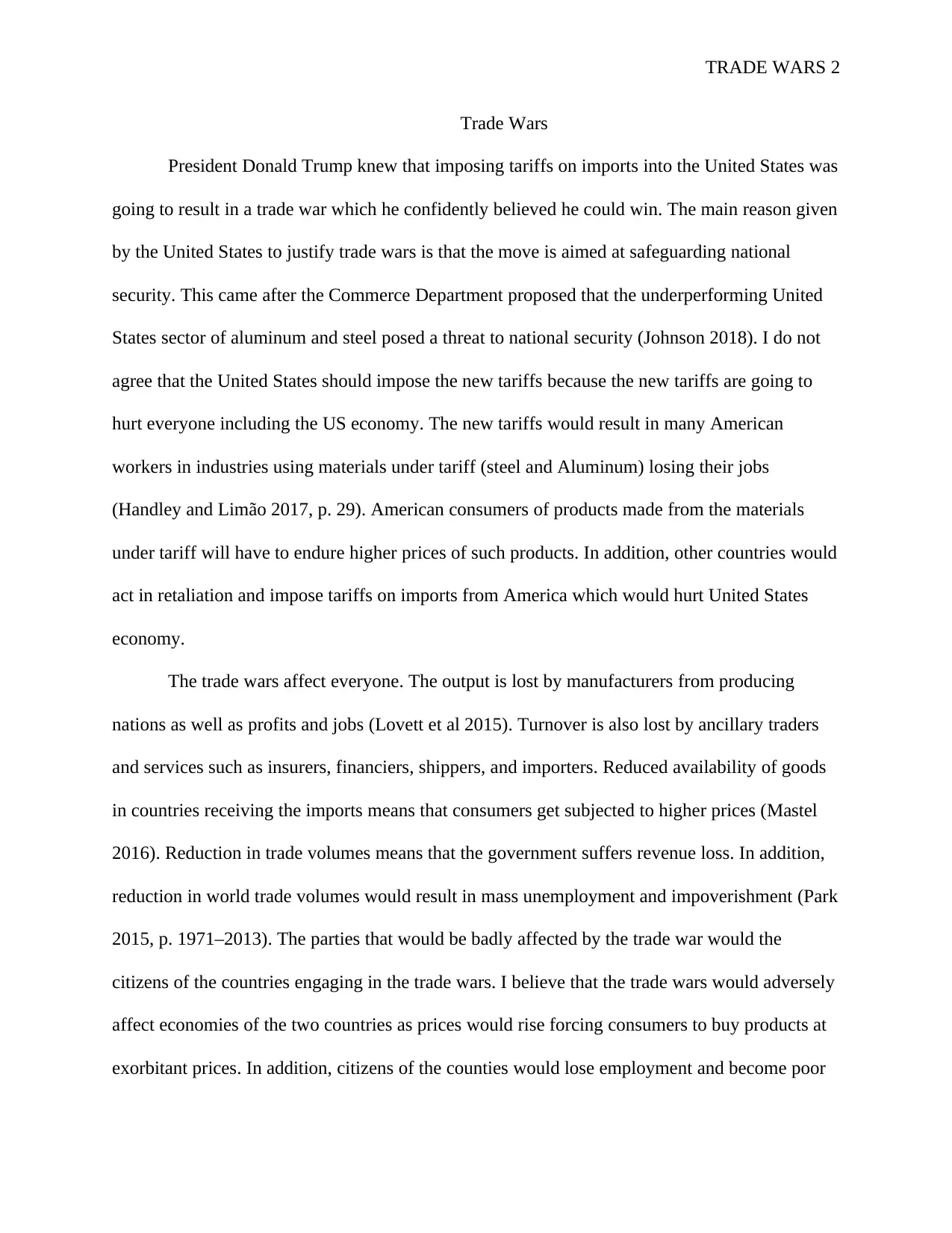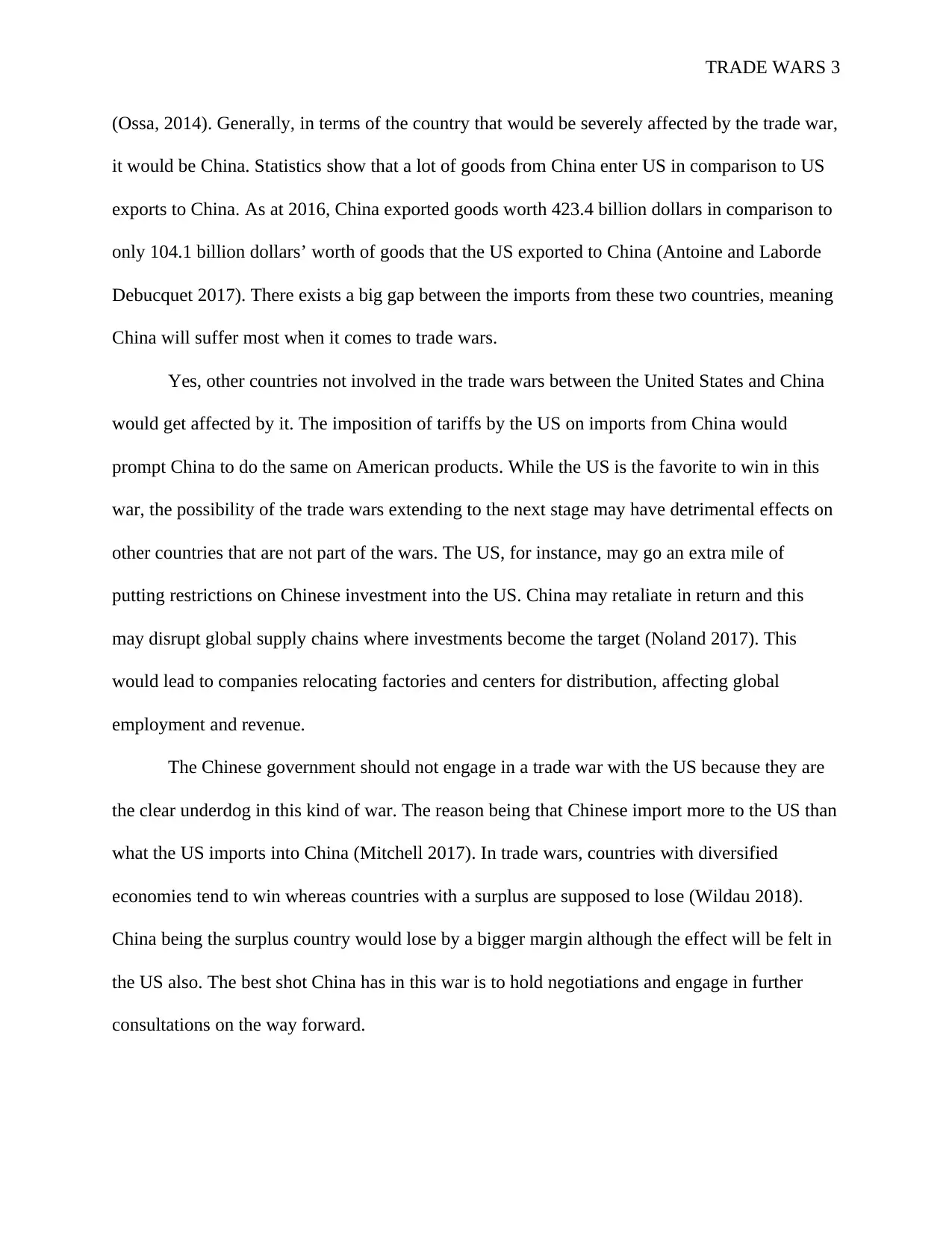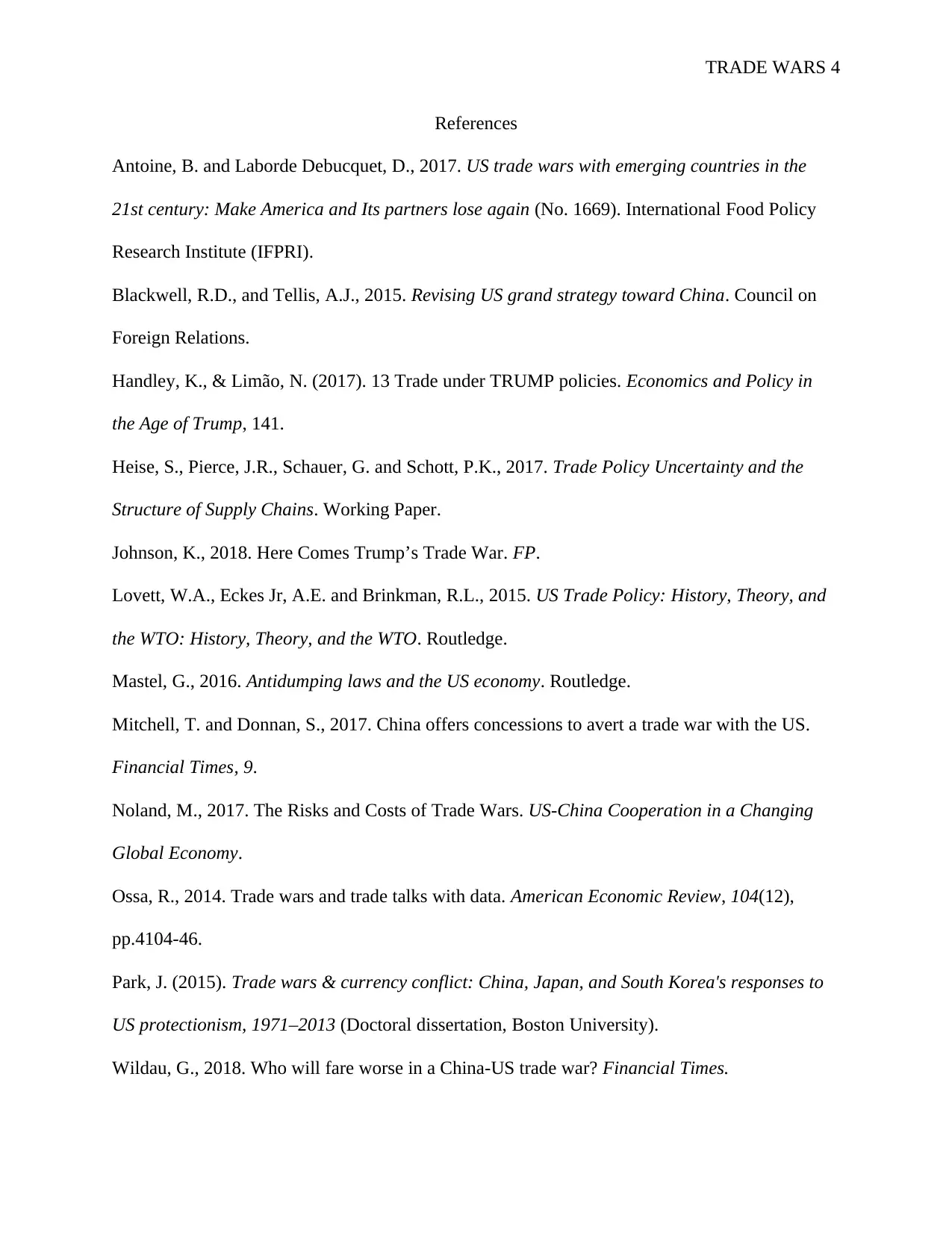Economic Analysis: Trade Wars, Tariffs, and Global Consequences
VerifiedAdded on 2021/06/14
|4
|1064
|79
Essay
AI Summary
This essay analyzes the impact of trade wars, particularly focusing on the trade disputes initiated by the United States, specifically the imposition of tariffs on imports. The author argues against the imposition of tariffs, highlighting potential negative consequences such as job losses in industries using materials under tariff, higher consumer prices, and retaliatory tariffs from other countries, which could hurt the US economy. The essay emphasizes that trade wars affect everyone involved, leading to lost output, reduced profits, and job losses for manufacturers, ancillary traders, and service providers. It further discusses the potential for reduced availability of goods, government revenue loss, mass unemployment, and impoverishment. The essay specifically examines the US-China trade relationship, noting that China would likely suffer more due to its larger exports to the US. It also considers the broader global implications, including the potential for disruptions to global supply chains and investment flows. The essay concludes by suggesting that China should engage in negotiations rather than a trade war, as it is the clear underdog in this scenario.
1 out of 4











![[object Object]](/_next/static/media/star-bottom.7253800d.svg)